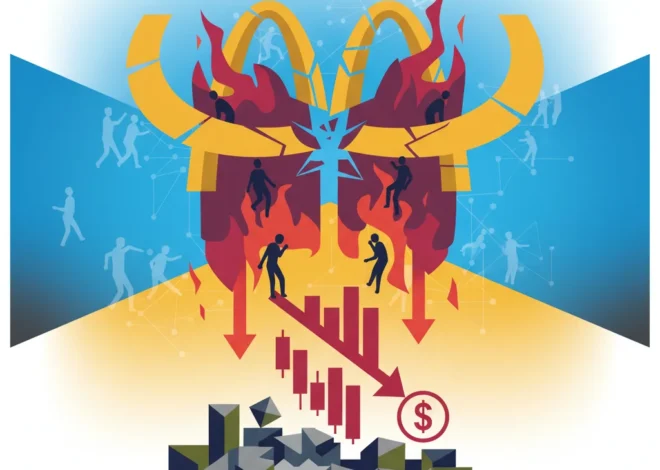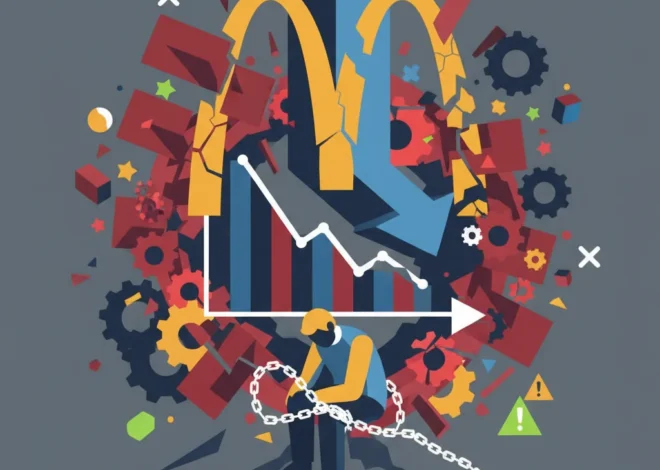
Beyond the Headlines: The Epstein Files and the New Era of Financial Accountability
The saga of Jeffrey Epstein continues to send shockwaves through the highest echelons of power, politics, and society. While the headlines often focus on the salacious and criminal aspects, for those in the world of finance, business, and investment, the ongoing release of documents represents something more profound: a critical inflection point for risk management, corporate governance, and the very definition of due diligence. The unsealing of these files is not merely a legal proceeding; it’s a seismic event with the potential to reshape investor confidence, redefine corporate liability, and permanently alter the landscape of high-stakes finance.
This isn’t just about one man’s horrific crimes. It’s about the intricate, and often opaque, web of financial and social connections that enabled him. As names, institutions, and financial dealings come to light, we are forced to confront uncomfortable questions about the intersection of wealth, power, and accountability. For investors, executives, and anyone operating in the global economy, understanding the implications is no longer optional—it’s essential for survival.
The Ripple Effect: From Courtroom to Boardroom
The core issue at stake is transparency. Court-ordered releases of documents, such as the tranches of files made public in early 2024, have peeled back layers of secrecy surrounding Epstein’s network. These documents, including flight logs, calendars, and depositions, offer a glimpse into a world where the lines between personal relationships and professional dealings were dangerously blurred. While the legal focus is on identifying co-conspirators and bringing justice for victims, the financial fallout is already beginning to manifest.
Every name mentioned, whether in a criminal context or simply as an associate, creates a ripple effect. For publicly traded companies, an executive’s connection to the scandal can trigger a crisis of confidence, impacting the stock market valuation almost instantaneously. We’ve seen this pattern before. According to a Reuters report from 2020, the former CEO of Barclays, Jes Staley, saw his professional relationship with Epstein come under intense scrutiny, ultimately leading to his departure from the bank amid a regulatory investigation. This case serves as a powerful example of “key person risk”—the danger that a company’s fortunes are overly tied to a single individual whose personal conduct can become a massive liability.
For the modern investor, the lesson is clear: due diligence must now extend far beyond balance sheets and P&L statements. It requires a deep, forensic look into the character, connections, and conduct of corporate leadership. The era of overlooking red flags in the name of high returns is over.
The Kidult Economy: How Lego and Pokémon are Powering a Surprising Market Rebound
ESG Investing and the Governance Gauntlet
The Epstein case has become a defining moment for the Environmental, Social, and Governance (ESG) investing movement. While the “E” for Environment often gets the most attention, this scandal strikes at the very heart of the “S” (Social) and “G” (Governance) pillars.
- Social Risk: A company’s association with individuals involved in human trafficking and exploitation represents a catastrophic failure of social responsibility. It raises questions about the corporate culture and the ethical standards upheld by its leadership. Consumers, employees, and investors are increasingly unwilling to support businesses tainted by such associations.
- Governance Failure: The “G” in ESG is about the systems of control, oversight, and accountability within an organization. How could major banking institutions and investment firms conduct business with an individual like Epstein for years? This points to systemic breakdowns in compliance, risk assessment, and board oversight. A Wall Street Journal article detailed JPMorgan Chase’s $290 million settlement with Epstein’s victims, a stark financial penalty for the bank’s role in facilitating his financial operations long after his initial conviction. This wasn’t just a poor business decision; it was a catastrophic governance failure with a nine-figure price tag.
Investors are now demanding more than just lip service to ESG principles. They are using these frameworks as a lens to scrutinize potential investments, understanding that poor governance and social failings are leading indicators of future financial distress and volatility in trading.
The New Playbook for Risk and Due Diligence
The ongoing revelations necessitate a complete overhaul of the traditional risk assessment playbook. Companies and investment funds must adapt to this new environment of radical transparency or risk being left behind. Below is a breakdown of potential impacts and key considerations for different sectors.
| Sector / Area | Potential Impact of Document Release | Key Investor & Leadership Consideration |
|---|---|---|
| Banking & Finance | Increased regulatory scrutiny, massive fines for compliance failures, loss of client trust, and executive resignations. | Are Know Your Customer (KYC) and Anti-Money Laundering (AML) protocols robust enough to detect behavioral and reputational risks, not just financial ones? |
| Private Equity & Venture Capital | Devaluation of portfolio companies linked to named individuals. Difficulty in fundraising if LPs (Limited Partners) lose confidence. | How deep is the due diligence on founders, key executives, and major co-investors? Is there a character and network analysis clause? |
| Publicly Traded Corporations | Sudden stock price drops, shareholder lawsuits, and pressure for board shake-ups if executives or board members are named. | Does the board have a clear crisis management plan for reputational attacks? Are executive conduct clauses strong enough? |
| Technology & Fintech | Opportunity to develop and market advanced solutions for due diligence, network analysis, and risk monitoring. | How can financial technology be leveraged to provide a more holistic view of risk, incorporating data from non-traditional sources? |
This new environment demands new tools. The field of fintech is rapidly evolving to meet this challenge. So-called “RegTech” (Regulatory Technology) firms are using artificial intelligence and machine learning to scan vast datasets—from news articles and social media to legal filings and sanctions lists—to build comprehensive risk profiles on individuals and entities. This goes far beyond a simple credit check, offering a glimpse into the complex web of an individual’s associations.
Solving the Market: What the FT Crossword Teaches Us About Modern Finance
Can Technology Be the Guardian of Transparency?
As we look to the future, the conversation inevitably turns to technology’s role in preventing such systemic failures. While technology is not a panacea, it offers powerful tools to enforce the transparency that this scandal proves is so desperately needed.
Consider the theoretical application of blockchain technology. At its core, a blockchain is an immutable, distributed ledger. In the world of high-value, private transactions—the very world Epstein inhabited—a blockchain-based system could create an unchangeable record of fund flows and asset ownership. This would make it exponentially harder to create the shell companies and opaque financial structures that are often used to hide illicit activities. While the technology is still maturing for such widespread use in private banking, its potential as a tool for radical transparency is immense.
More immediately, advances in AI-powered financial technology are changing the game for compliance departments. These systems can analyze patterns of communication, transactions, and travel to flag anomalies that a human analyst might miss. A 2022 report by Statista projects the global RegTech market to grow significantly, demonstrating the immense demand for technology that can help financial institutions navigate an increasingly complex web of legal, ethical, and reputational risks.
The core principle of these technologies is to reduce the reliance on trust and replace it with verifiable data. In a world where personal relationships can be used to mask criminal behavior, this shift in economics and compliance is not just welcome; it’s necessary.
Brewing Discontent: Is Starbucks' Labor Crisis a Ticking Time Bomb for Its Stock?
Conclusion: A New Mandate for the Financial World
The unsealing of the Epstein files is far more than a media spectacle. It is a crucible for the financial industry, testing its commitment to ethics, its resilience to reputational shocks, and its ability to adapt to a new era of accountability. The legislation and court orders forcing these disclosures are merely the catalysts for a much deeper conversation that every board member, investor, and financial professional must now have.
The key takeaways are undeniable. Reputational risk is now a primary financial risk. ESG is no longer a “nice-to-have” but a critical framework for assessing long-term viability. And technology, from AI to blockchain, will play an increasingly crucial role in enforcing a new standard of transparency. The connections that were once a source of power and protection are now, under the glare of public scrutiny, a source of profound liability. For the world of finance, the message is clear: the shadows are receding, and what’s done in the dark will eventually be brought into the light—with a full accounting on the balance sheet.


